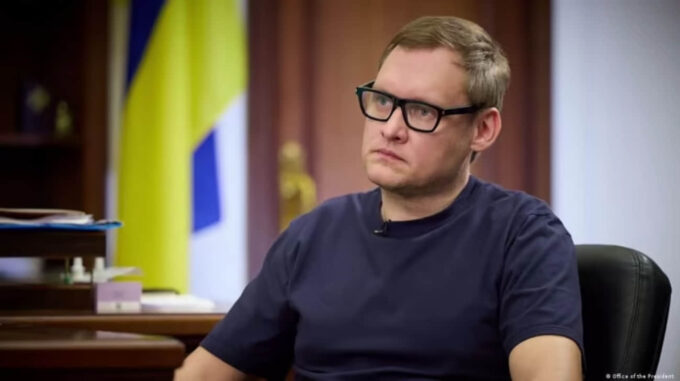The investigation into the former deputy head of the Office of the President, Andriy Smyrn, related to allegations of corruption offenses, has been completed at the pre-trial stage

According to official sources from the SAP and NABU press offices, this step represents the logical conclusion of the active phase of the investigation into this case, which has generated significant public resonance and drawn attention to the level of corruption at the highest echelons of government. As reported by the press offices of the anti-corruption agencies, on May 6, 2025, the Prosecutor of the Specialized Anti-Corruption Prosecutor's Office made a decision to end the pre-trial investigation in this case, which involved the former deputy head of the Office of the President of Ukraine and the owner of a construction company. It is noted that the detective investigators of NABU, after executing the relevant procedural actions, transferred the case materials to the defense for review, which is an important stage in concluding investigative actions and paves the way for further judicial proceedings. Prior to this, on May 5, the High Anti-Corruption Court partially granted the detective’s motion regarding the change of the suspect’s preventive measure. The previously applied bail was canceled, and the court decided on detention with the possibility of bail as an alternative. This decision allows the defendant to remain at liberty while under more stringent preventive measures. According to investigation data, between 2020 and 2022, the suspect acquired assets worth 17.1 million hryvnias, a significant part of which has not been verified as legally obtained. Official income data indicate that the official salary of the official during this period was over 1.3 million hryvnias, creating a discrepancy of more than 15.7 million hryvnias, which investigators consider to have been obtained unlawfully. Additionally, in an effort to conceal the origins of these funds, the official registered most of the assets in his brother’s name, while reserving the right to manage them independently. Investigators paid particular attention to another episode involving the suspect — from 2019 to 2021, he allegedly illegally collected cash funds, which he then planned to legalize through the construction of private houses in a recreational zone of Odessa region. According to the investigation, nearly 6.5 million hryvnias were spent on these purposes, transferred from a well-known construction company, whose ownership was linked to the suspect through property registered in both the company and a trusted person. Another aspect of this case concerns a bribe offer of $100,000 addressed to the head of a construction company. According to the investigation, in 2022, the suspect approached the company owner with a request to facilitate the reversal of a decision by the Antimonopoly Committee of Ukraine, which was advantageous to his accomplice, in exchange for payment in the form of work and services. By abusing his official position, the official contributed to the adoption of the desired decision, helping the winning company secure tenders that significantly affected market competition. Smyrn himself has been repeatedly held accountable. On April 16, 2025, he was formally charged again with legalization of illegal income and receipt of a large bribe — in this case, amounts exceeding 15.7 million hryvnias. The suspect’s previous refusal to cooperate with the investigation indicates ongoing attempts to conceal crimes and evade responsibility. Currently, the official is under house arrest, and on May 6, a bail of 18 million hryvnias was posted for him, allowing him to remain free since then. Smyrn’s reaction to this new development was restrained. He stated that he firmly believes that investigators and prosecutors acted hastily and attributes this to limited investigative periods and political pressure. Nevertheless, the case continues to move toward the judicial phase, and a final decision on the suspect’s guilt or innocence is unlikely to be made quickly. This case, revealing schemes of using official powers for personal enrichment and avoiding accountability, has become one of the most high-profile in the context of the fight against corruption at the top level of government. At the same time, it casts doubt on the effectiveness of the anti-corruption system and underscores the need for institutional reforms to promote greater transparency and accountability. It is expected that in the near future, this case will proceed to court for a final hearing and decision, which will send an important signal to the entire state mechanism fighting corruption.

